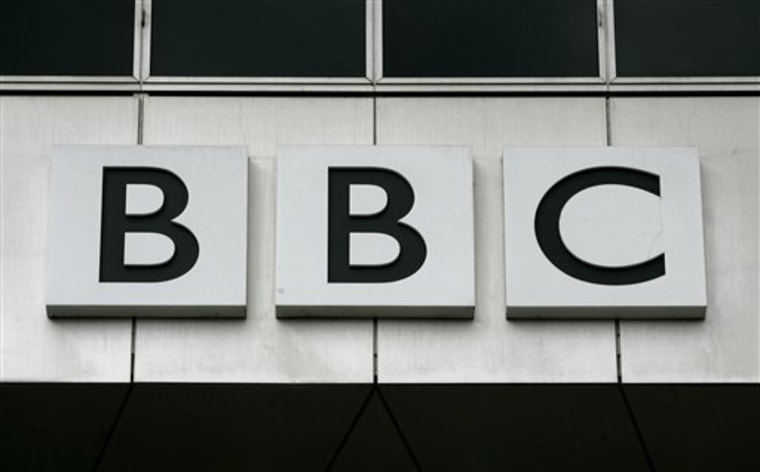The British Broadcasting Corp. announced Thursday it will cut 1,800 jobs, broadcast fewer programs and require staff to create content for television, radio and the Internet, creating a showdown with journalists and other employees.
Union leaders said a strike was inevitable if the BBC went forward with the radical overhaul, which includes major cutbacks to news and documentary divisions. BBC journalists say the cuts threaten the quality of the broadcast.
BBC Director-General Mark Thompson told staff that 2,500 jobs will be cut over the next six years, but that 700 new jobs will likely be created.
The job cuts represent about 8 percent of the corporation's 23,000 positions.
"Media is transforming. Audiences are transforming. It would be easy to say that the sheer pace of this revolution is too fast for the BBC," Thompson said.
"I believe we will look back at today in a few years time as the moment when the BBC did make some difficult choices," he said. "I don't want to minimize the human consequences of some of the decisions we have reached, but this is not just a story about cuts. It's about building our future and grasping some amazing opportunities."
The BBC also plans to sell its Television Center in west London, where most of its television shows and nearly all its national TV and radio news programs are produced, to cover a 2 billion pound ($4 billion) funding shortfall.
The funding gap comes after the government forced BBC management earlier this year to accept less money in fees from viewers. The BBC is funded directly by a tax paid by British households with TV sets.
Thompson met with union leaders before announcing the plan to employees.
A strike was "100 percent guaranteed" if the BBC proceeds with voluntary layoffs, which were expected to begin as early as Friday, Gerry Morrissey, general secretary of the broadcasting workers' union, said after the meeting.
Thompson's cost-cutting plan _ which he described as a radical _ would end the system where separate teams of journalists, producers, technicians and planners from various radio and television stations cover the same story. In the future, BBC employees would be required to work across all media to reduce duplication.
About 370 jobs will be cut in the BBC news operations, 660 jobs will be cut in the division which makes factual, children's and entertainment programs and about 550 across regional outlets.
The BBC will also cut the number of programs it commissions by 10 percent.
"We fail to understand how they can claim to be defending public service broadcasting while making the most savage cuts in core news and current affairs areas," said Jeremy Dear, the head of the National Union of Journalists. "Unless the BBC reconsiders its position, strike action looks inevitable."
The job cuts follow a series of setbacks this year at the BBC.
The head of the BBC's flagship television channel resigned this month over the editing of footage that wrongly implied Queen Elizabeth II walked out abruptly from a portrait sitting with photographer Annie Leibovitz. The BBC has also come under criticism for 11 other cases of audience deception, where contest results were faked or prerecorded while programs were presented as though they were live.
